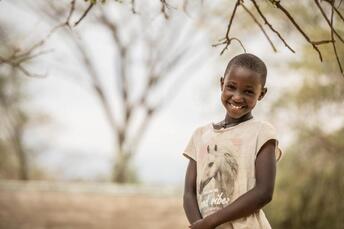|
Female Genital Mutilation (FGM) comprises all procedures that involve altering or injuring the female genitalia for non-medical reasons and is recognized internationally as a violation of the human rights, the health and the integrity of girls and women. Girls who undergo female genital mutilation face short-term complications such as severe pain, shock, excessive bleeding, infections, and difficulty in passing urine, as well as long-term consequences for their sexual and reproductive health and mental health.
Although primarily concentrated in 30 countries in Africa and the Middle East, female genital mutilation is a universal problem and is also practiced in some countries in Asia and Latin America. Female genital mutilation continues to persist amongst immigrant populations living in Western Europe, North America, Australia and New Zealand. To promote the elimination of female genital mutilation, coordinated and systematic efforts are needed, and they must engage whole communities and focus on human rights, gender equality, sexual education and attention to the needs of women and girls who suffer from its consequences. This year, the UNFPA-UNICEF Joint Programme on the Elimination of Female Genital Mutilation: Delivering the Global Promise launched the 2022 theme; "Accelerating Investment to End Female Genital Mutilation." Many countries are experiencing a “crisis within a crisis” due to the pandemic including an increase in female genital mutilation. That is why the United Nations calls on the global community to reimagine a world that enables girls and women to have voice, choice, and control over their own lives. Although the practice has been around for more than a thousand years, there are reasons to think that female genital mutilation could end in a single generation. That is why the United Nations strives for its full eradication by 2030, following the spirit of Sustainable Development Goal 5. Since 2008, UNFPA, jointly with UNICEF, leads the largest global programme to accelerate the elimination of female genital mutilation. The Joint Programme currently focuses on 17 countries in Africa and the Middle East and also supports regional and global initiatives. Over the years, this partnership has seen significant achievements. Through the support of the joint programme, more than 5.5 million girls and women received prevention, protection and care services related to FGM. Some 42.5 million people made public declarations to abandon FGM. 361,808 girls were prevented from undergoing FGM Source: United Nations
0 Comments
Leave a Reply. |
